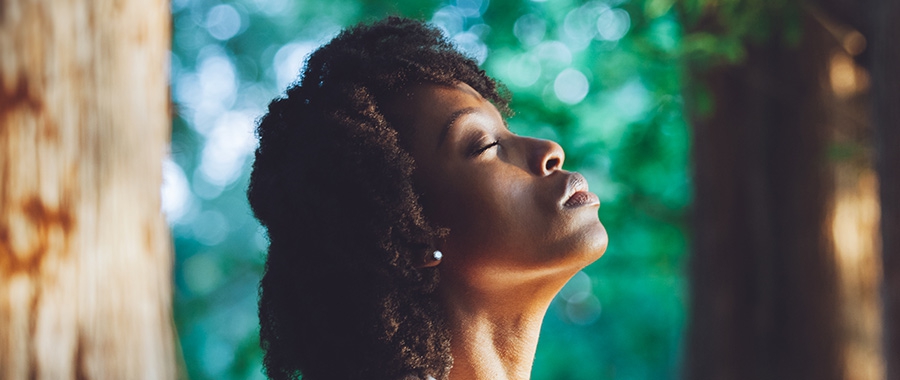The views expressed in our content reflect individual perspectives and do not represent the authoritative views of the Baha'i Faith.
Baha’is pray every morning and evening, recite an obligatory prayer at least once a day, and generally strive to maintain a prayerful attitude.
Like most things people do, culture and history shape the specific way that we pray. But what is the underlying point of prayer? What is its power? Some sing or chant, some sit still quietly, while others leap and dance.
Baha’is believe that among the wide variety of ways people can communicate with or worship God, prayer infuses our daily actions with an attitude of service to others.
Abdu’l-Baha said:
In the Baha’i Cause arts, sciences and all crafts are (counted as) worship. The man who makes a piece of notepaper to the best of his ability, conscientiously, concentrating all his forces on perfecting it, is giving praise to God. Briefly, all effort and exertion put forth by man from the fullness of his heart is worship, if it is prompted by the highest motives and the will to do service to humanity. This is worship: to serve mankind and to minister to the needs of the people. Service is prayer. A physician ministering to the sick, gently, tenderly, free from prejudice and believing in the solidarity of the human race, he is giving praise. – Abdu’l-Baha, Paris Talks, pp. 176-177.
Living in a culture where I am often encouraged to just hurry through the different parts of my day, to focus on productivity—typically defined by my ability to make money—it can be hard for me to imagine even the most minute details of my schedule as worship. Maybe the question is more, how can I imbue responding to emails with an attitude of worship?
It does, however, seem that mindfulness and finding a way to be grounded in each present moment is essential. If somehow this is blocked, then even getting to the point of striving for perfection and showing gratitude are probably far-fetched. If somehow, we can focus on the present moment, while recognizing perfection as an aim in a non anxiety-based or ego-centric way, we can achieve a state of prayerfulness in action.
Perhaps another way to lead a gracious and spiritually grounded life is to be consistent in prayer:
Be kind to all around and serve one another; love to be just and true in all your dealings; pray always and so live your life that sorrow cannot touch you. – Abdu’l-Baha, Abdu’l-Baha in London, p. 82.
Baha’is also believe that the quality of a prayer affects its potency:
The most acceptable prayer is the one offered with the utmost spirituality and radiance; its prolongation hath not been and is not beloved by God. The more detached and the purer the prayer, the more acceptable is it in the presence of God. –The Bab, Selections from the Writings of the Bab, p. 78.
Some might ask, why? Why try to achieve a state of prayer? What could possibly be worth attempting to reach such a mighty goal? The Baha’i teachings say that prayer gladdens the soul:
Praise be to God, thy heart is engaged in the commemoration of God, thy soul is gladdened by the glad tidings of God and thou art absorbed in prayer. The state of prayer is the best of conditions, for man is then associating with God. Prayer verily bestoweth life, particularly when offered in private and at times, such as midnight, when freed from daily cares. – Abdu’l-Baha, Selections from the Writings of Abdu’l-Baha, p. 202.
















Comments
Sign in or create an account
Continue with Googleor